Incredible as it may sound, the United States committed an act of war of aggression against the Hawaiian Kingdom, being a neutral State, when it was at war with Spain in 1898, and that the United States has been in a war of aggression against Hawai‘i ever since. This war of aggression has lasted over 116 years, the longest ever since the Thirty Years War (1618-1648). According to Oppenheim’s International Law (7th ed.), p. 685, “hostilities against a neutral [State] on the part of either belligerent are acts of war, and not mere violations of neutrality. Thus the German attack on Belgium in 1914, to enable German troops to march through Belgian territory and attack France, created war between Germany and Belgium.”
The United States intent and purpose was to deliberately violate the neutrality of the Hawaiian Kingdom in order to fight Spain in its colonies of Guam and the Philippines, and after the war to use the Hawaiian Islands as a military outpost to protect the west coast of the United States as well as a base of operations for future wars. The action taken by the United States draws parallels to Germany’s occupation of neutral States during World War I and II, which at the time was thought of as unprecedented, but it wasn’t. The United States set the precedent in 1898.
On May 10, 1940, Germany invaded and occupied the neutral territories of Belgium, the Netherlands and Luxembourg in order to fight France and Great Britain during World War II. The Nuremburg Tribunal concluded in its Nuremburg Judgment, that these invasions and subsequent occupations were unjustified acts of an aggressive war. The Tribunal stated:
“There is no evidence before the Tribunal to justify the contention that the Netherlands, Belgium and Luxembourg were invaded by Germany because their occupation had been planned by England and France. British and French staffs had been operating in the Low Countries, but the purpose of this planning was to defend these countries in the event of a German attack.”
“The invasion of Belgium, Holland and Luxembourg was entirely without justification.”
“It was carried out in pursuance of policies long considered and prepared, and was plainly an act of aggressive war. The resolve to invade was made without any other consideration than the advancement of the aggressive policies of Germany.”
Of the three neutral States, the situation with Luxembourg bears the closest similarity to the Hawaiian Kingdom, whereby Germany also unilaterally annexed Luxembourg and initiated an aggressive campaign of “Germanization” and “Nazification” in the public schools. The United States also initiated an aggressive campaign of “Americanization” in the public schools that sought to obliterate the national character of the Hawaiian Kingdom and replace it with American patriotism.
Luxembourg was previously occupied by Germany for the same unjustified reasons from 1914-1918 during World War I.
The Hawaiian Kingdom also has Treaties of Friendship, Commerce and Navigation, with all three countries: Belgium (October 4, 1862), and the Netherlands and Luxembourg (October 16, 1862). William III, King of the Netherlands, who entered into the Dutch treaty, was also the Grand Duke of Luxembourg.
War, under international law, is considered an extension of a State’s sovereignty and therefore regulated by the laws of war as opposed to the laws of peace. International law separates the rights of belligerent States from the rights of neutral States. Laws of war—jus in bello, make up a part of customary international law until declared in law making treaties that began in the mid-nineteenth century. The first treaty was the 1856 Paris Declaration Respecting Maritime Law that abolished privateering, which later progressed to the 1899 and 1907 Hague Conventions, and the 1949 Geneva Conventions. In order for the laws of peace to return, war must come to an end. If not, then the laws of war—jus in bello, remain over the regions that are affected by the war itself. For the case of neutral States being illegally occupied during a war, being an act of war of aggression, its state of war with the belligerent occupant will continue until the occupying State ceases to occupy the neutral State, and the laws of war would still apply according to the 1907 Hague Convention, IV, and the 1949 Geneva Convention, IV.
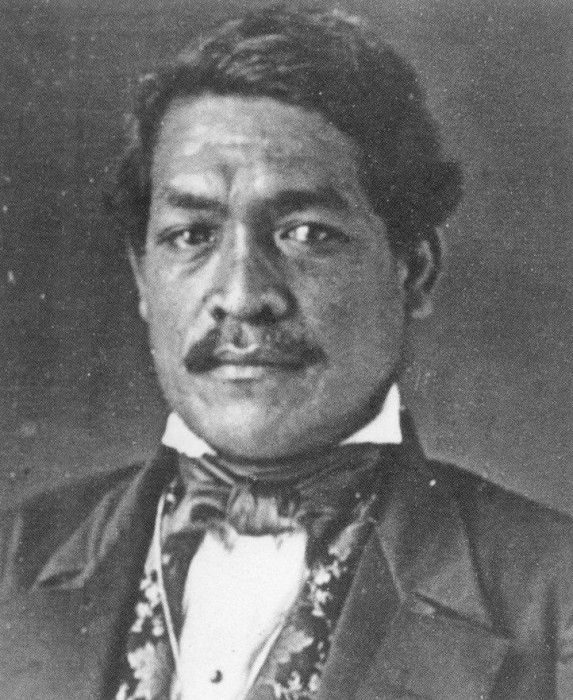 Hawaiian neutrality began with King Kamehameha III’s proclamation of neutrality during the Crimean War on May 16, 1854. Since then, the Hawaiian government worked with other Powers, to include the United States, to have Hawai‘i’s neutrality respected in all subsequent wars. Neutrality provisions were inserted in the treaties with Sweden/Norway, Spain, Germany, and Italy.
Hawaiian neutrality began with King Kamehameha III’s proclamation of neutrality during the Crimean War on May 16, 1854. Since then, the Hawaiian government worked with other Powers, to include the United States, to have Hawai‘i’s neutrality respected in all subsequent wars. Neutrality provisions were inserted in the treaties with Sweden/Norway, Spain, Germany, and Italy.
On April 7, 1855, His Majesty King Kamehameha IV opened the Legislative Assembly, and in his speech he reiterated the Kingdom’s neutrality.
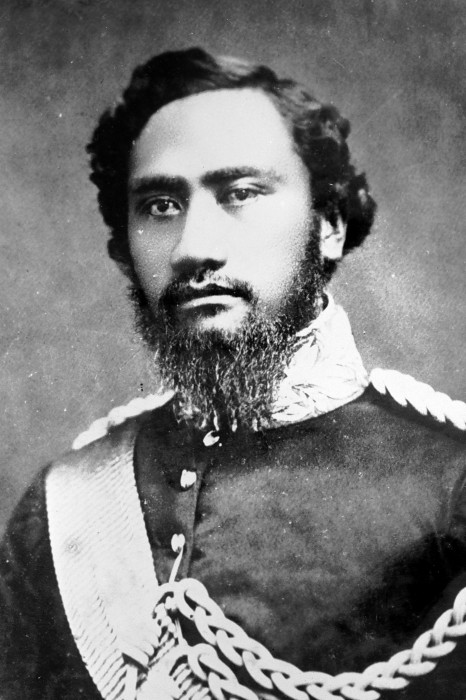 “It is gratifying to me, on commencing my reign, to be able to inform you, that my relations with all the great Powers, between whom and myself exist treaties of amity, are of the most satisfactory nature. I have received from all of them, assurances that leave no room to doubt that my rights and sovereignty will be respected. My policy, as regards all foreign nations, being that of peace, impartiality and neutrality, in the spirit of the Proclamation by the late King, of the 16th May last, and of the Resolutions of the Privy Council of the 15th June and 17th July. I have given to the President of the United States, at his request, my solemn adhesion to the rule, and to the principles establishing the rights of neutrals during war, contained in the Convention between his Majesty the Emperor of all the Russias, and the United States, concluded in Washington on the 22nd July last.”
“It is gratifying to me, on commencing my reign, to be able to inform you, that my relations with all the great Powers, between whom and myself exist treaties of amity, are of the most satisfactory nature. I have received from all of them, assurances that leave no room to doubt that my rights and sovereignty will be respected. My policy, as regards all foreign nations, being that of peace, impartiality and neutrality, in the spirit of the Proclamation by the late King, of the 16th May last, and of the Resolutions of the Privy Council of the 15th June and 17th July. I have given to the President of the United States, at his request, my solemn adhesion to the rule, and to the principles establishing the rights of neutrals during war, contained in the Convention between his Majesty the Emperor of all the Russias, and the United States, concluded in Washington on the 22nd July last.”
The aforementioned Declarations and the 1854 Russian-American Convention represented the first recognition of the right of neutral States to conduct free trade without any hindrance from war. Stricter guidelines for neutrality were later established in the 1871 Treaty of Washington between the United States and Great Britain that was negotiated during the aftermath of the American Civil War, which also formed the basis of the Alabama claims arbitration in Geneva, Switzerland.
Without justification, the United States of America is directly responsible for the violation of the neutrality of the Hawaiian Kingdom and the occupation of its territory for military purposes during the 1898 Spanish-American War. Article XXVI of the Hawaiian-Spanish Treaty of October 29, 1863, provides, “All vessels bearing the flag of Spain, shall, in time of war, receive every possible protection, short of active hostility, within the ports and waters of the Hawaiian Islands, and Her Majesty the Queen of Spain engages to respect, in time of war the neutrality of the Hawaiian Islands, and to use her good offices with all the other powers having treaties with the same, to induce them to adopt the same policy toward the said Islands.”
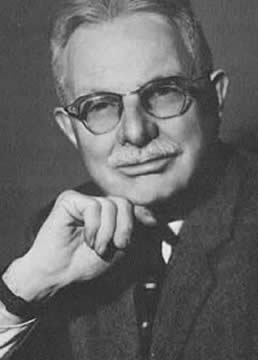 According to the well-known American publicist on international law, Quincy Wright’s A Study of War, 2nd ed., p. 787, “The status of neutrality reached its climax in the nineteenth century with the especial support of Great Britain and the United States.” According to Wright, the rules of neutral status “were to a considerable extent codified in the American Neutrality act (1794), the British Foreign Enlistment Act (1819), the Declaration of Paris (1856), the rules of the Treaty of Washington (1871), the Hague Conventions (1907), and the Declaration of London (1909).”
According to the well-known American publicist on international law, Quincy Wright’s A Study of War, 2nd ed., p. 787, “The status of neutrality reached its climax in the nineteenth century with the especial support of Great Britain and the United States.” According to Wright, the rules of neutral status “were to a considerable extent codified in the American Neutrality act (1794), the British Foreign Enlistment Act (1819), the Declaration of Paris (1856), the rules of the Treaty of Washington (1871), the Hague Conventions (1907), and the Declaration of London (1909).”
Article VI of the 1871 Treaty of Paris between the United States and Great Britain declared that a neutral government is bound “Not to permit or suffer either belligerent to make use of its ports or waters as the base of naval operations against the other, or for the purpose of renewal or augmentation of military supplies or arms, or the recruitment of men.” The United States regarded this rule as declaratory of existing customary international law of the time. This rule was reproduced in Articles 1, 2 and 4 of the 1907 Hague Convention, V, which contained these provisions—“The territory of neutral Powers is inviolable” (Article 1); “Belligerents are forbidden to move troops or convoys, whether of munitions of war or of supplies, across the territory of a neutral Power” (Article 2); “Corps of combatants cannot be formed nor recruiting agencies opened on the territory of a neutral Power to assist the belligerents” (Article 4).
There is no doubt of the binding force of the 1863 Hawaiian-Spanish Treaty, the 1871 Treaty of Washington, and customary international law, as well as assurances by the United States through diplomatic notes since 1854, which guaranteed the neutrality of the Hawaiian Islands during the Spanish-American War.
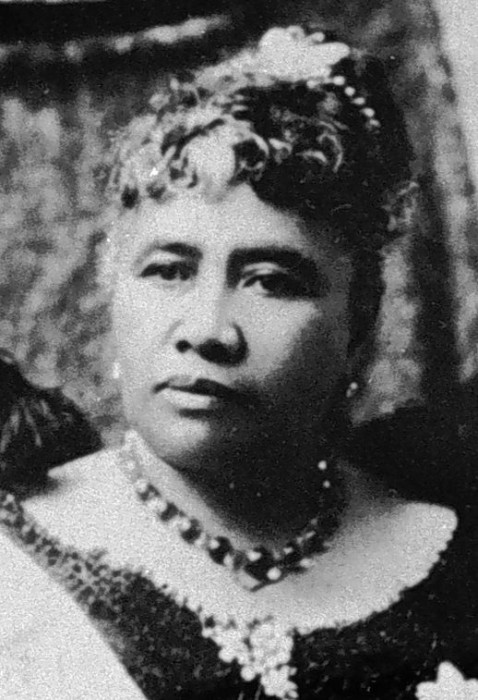 On December 18, 1893, an executive agreement was reached through exchange of diplomatic notes between United States President Grover Cleveland and the Hawaiian Kingdom’s Queen Lili‘uokalani, whereby the United States committed to the reinstatement of the constitutional government, and thereafter the Queen to grant a full pardon to a minority of insurgents who participated with the United States Legation in the unlawful overthrow of the Hawaiian government. Prior to the agreement, the United States initiated a presidential investigation on April 1, 1893 after ordering U.S. troops to return to the U.S.S. Boston that was anchored in Honolulu harbor. The investigation was concluded on October 18, 1893 and concluded that the United States was entirely responsible for the unlawful overthrow of the Hawaiian government by its military force.
On December 18, 1893, an executive agreement was reached through exchange of diplomatic notes between United States President Grover Cleveland and the Hawaiian Kingdom’s Queen Lili‘uokalani, whereby the United States committed to the reinstatement of the constitutional government, and thereafter the Queen to grant a full pardon to a minority of insurgents who participated with the United States Legation in the unlawful overthrow of the Hawaiian government. Prior to the agreement, the United States initiated a presidential investigation on April 1, 1893 after ordering U.S. troops to return to the U.S.S. Boston that was anchored in Honolulu harbor. The investigation was concluded on October 18, 1893 and concluded that the United States was entirely responsible for the unlawful overthrow of the Hawaiian government by its military force.
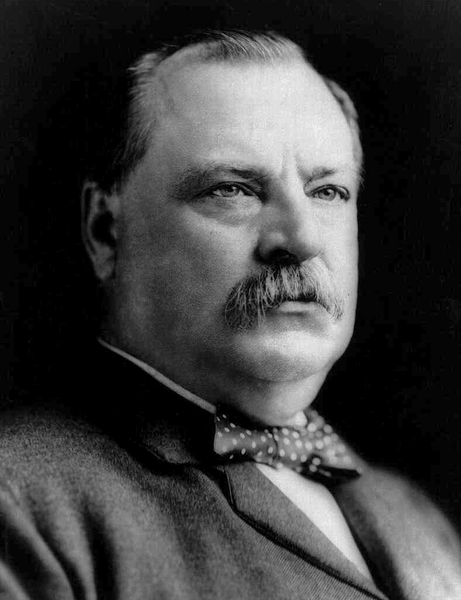 President Cleveland declared in his message to Congress on December 18, 1893, “And so it happened that on the 16th day of January, 1893, between four and five o’clock in the afternoon, a detachment of marines from the United States steamer Boston, with two pieces of artillery, landed at Honolulu. The men, upwards of 160 in all, were supplied with double cartridge belts filled with ammunition and with haversacks and canteens, and were accompanied by a hospital corps with stretchers and medical supplies. This military demonstration upon the soil of Honolulu was of itself an act of war, unless made either with the consent of the Government of Hawaii or for the bona fide purpose of protecting the imperiled lives and property of citizens of the United States. But there is no pretense of any such consent on the part of the Government of the Queen, which at that time was undisputed and was both the de facto and the de jure government.” Cleveland also concluded that the provisional government that seized control of the constitutional government with U.S. troops, “was neither a government de facto nor de jure,” but self-declared.
President Cleveland declared in his message to Congress on December 18, 1893, “And so it happened that on the 16th day of January, 1893, between four and five o’clock in the afternoon, a detachment of marines from the United States steamer Boston, with two pieces of artillery, landed at Honolulu. The men, upwards of 160 in all, were supplied with double cartridge belts filled with ammunition and with haversacks and canteens, and were accompanied by a hospital corps with stretchers and medical supplies. This military demonstration upon the soil of Honolulu was of itself an act of war, unless made either with the consent of the Government of Hawaii or for the bona fide purpose of protecting the imperiled lives and property of citizens of the United States. But there is no pretense of any such consent on the part of the Government of the Queen, which at that time was undisputed and was both the de facto and the de jure government.” Cleveland also concluded that the provisional government that seized control of the constitutional government with U.S. troops, “was neither a government de facto nor de jure,” but self-declared.
After President Cleveland submitted a request to Congress for authorization to use force in order to reinstate the constitutional government of the Queen, which had been usurped by the United States, the House of Representatives and the Senate each passed resolutions calling upon the President to not carry out the executive agreements and also issued warnings to foreign States to not intervene in the Hawaiian situation.
U.S. Senate resolution, May 31, 1894, 53 Cong., 2nd Sess., 5499 (1894):
“Resolved, That of right it belongs wholly to the people of the Hawaiian Islands to establish and maintain their own form of government and domestic polity; that the United States ought in nowise to interfere therewith, and that any intervention in the political affairs of these islands by any other government will be regarded as an act unfriendly to the United States.”
U.S. House resolution, February 7, 1894, 53 Cong., 2nd Sess., 2000 (1894):
“Resolved, First. That it is the sense of this House that the action of the United States minister in employing United States naval forces and illegally aiding in overthrowing the constitutional Government of the Hawaiian Islands in January, 1893, and in setting up in its place a Provisional Government not republican in form and in opposition to the will of a majority of the people, was contrary to the traditions of our Republic and the spirit of our Constitution, and should be condemned. Second. That we heartily approve the principle announced by the President of the United States that interference with the domestic affairs of an independent nation is contrary to the spirit of American institutions. And it is further the sense of this House that the annexation of the Hawaiian Islands to our country, or the assumption of a protectorate over them by our Government is uncalled for and inexpedient; that the people of that country should have their own line of policy, and that foreign intervention in the political affairs of the islands will not be regarded with indifference by the Government of the United States.”
Without Congressional support, the President could not deploy U.S. troops back to Hawai‘i in order to reinstate the constitutional government and the insurgents hired mercenaries from the United States to fill the vacuum left by the departure of U.S. troops. On July 4, 1894, the insurgency was renamed the Republic of Hawai‘i, which Congress over one hundred years later in its apology for the 1893 overthrow the Hawaiian Kingdom government, U.S. Public Law 103-150, admitted was “self-declared.”
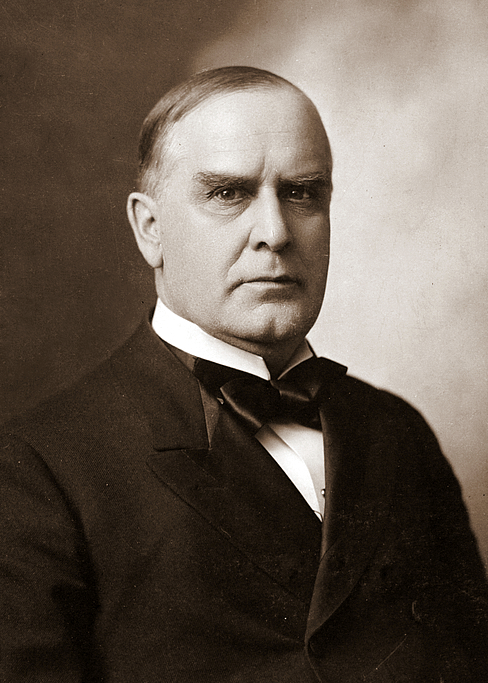 The insurgents were desperately holding on to power until a new President entered office so that the original plan of annexation could be completed. On March 4, 1897, President William McKinley entered office and another attempt to annex by treaty failed as a result of protests by Queen Lili‘uokalani and by the people.
The insurgents were desperately holding on to power until a new President entered office so that the original plan of annexation could be completed. On March 4, 1897, President William McKinley entered office and another attempt to annex by treaty failed as a result of protests by Queen Lili‘uokalani and by the people.
On April 25, 1898, Congress declared war on Spain. Battles were fought in the Spanish colonies of Puerto Rico and Cuba, as well as the Spanish colonies of the Philippines and Guam. After Commodore Dewey defeated the Spanish Fleet in the Philippines on May 1, 1898, U.S. Representative Francis Newlands, submitted House joint resolution no. 259 for the annexation of the Hawaiian Islands to the House Committee on Foreign Affairs on May 4, 1898. Six days later, hearings were held on the Newlands resolution, and in testimony submitted to the committee, U.S. military leaders called for the immediate violation of Hawaiian neutrality and occupation of the Hawaiian Islands due to military necessity for both during the war with Spain and for any future wars that the United States would enter.
U.S. Naval Captain Alfred Mahan stated to the committee: “It is obvious that if we do not hold the islands ourselves we cannot expect the neutrals in the war to prevent the other  belligerent from occupying them; nor can the inhabitants themselves prevent such occupation. The commercial value is not great enough to provoke neutral interposition. In short, in war we should need a larger Navy to defend the Pacific coast, because we should have not only to defend our own coast, but to prevent, by naval force, an enemy from occupying the islands; whereas, if we preoccupied them, fortifications could preserve them to us. In my opinion it is not practicable for any trans-Pacific country to invade our Pacific coast without occupying Hawaii as a base.”
belligerent from occupying them; nor can the inhabitants themselves prevent such occupation. The commercial value is not great enough to provoke neutral interposition. In short, in war we should need a larger Navy to defend the Pacific coast, because we should have not only to defend our own coast, but to prevent, by naval force, an enemy from occupying the islands; whereas, if we preoccupied them, fortifications could preserve them to us. In my opinion it is not practicable for any trans-Pacific country to invade our Pacific coast without occupying Hawaii as a base.”
While the debates ensued in both the U.S. House and Senate, the U.S.S. Charleston, a protected cruiser, was ordered to lead a convoy of 2,500 troops to reinforce U.S. troops in the Philippines and Guam. These troops were boarded on the transport ships of the City of Peking, the City of Sidney and the Australia. In a deliberate violation of Hawaiian neutrality during the war as well as of international law, the convoy, on May 21, set a course to the Hawaiian Islands for re-coaling purposes. The convoy arrived in Honolulu on June 1, and took on 1,943 tons of coal before it left the islands on June 4.
As soon as it became apparent that the self-declared Republic of Hawai‘i, a puppet regime of the United States since 1893, had welcomed the U.S. naval convoys and assisted in re-coaling their ships, H. Renjes, Spanish Vice-Consul in Honolulu, lodged a formal protest on June 1, 1898. Minister Harold Sewall, from the U.S. Legation in Honolulu, notified Secretary of State William R. Day of the Spanish protest in a dispatch dated June 8. Renjes declared, “In my capacity as Vice Consul for Spain, I have the honor today to enter a formal protest with the Hawaiian Government against the constant violations of Neutrality in this harbor, while actual war exists between Spain and the United States of America.” A second convoy of troops bound for the Philippines, on the transport ships the China, Zelandia, Colon, and the Senator, arrived in Honolulu on June 23, and took on 1,667 tons of coal.
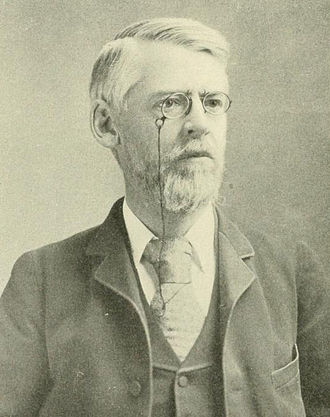 In a secret session of the U.S. Senate on May 31, 1898, Senator William Chandler warned of the consequences Alabama claims arbitration in Geneva, whereby Great Britain was found guilty of violating its neutrality during the American Civil War and compensated the United States with 15.5 million dollars in gold. Chandler cautioned, p. 278 of the secret session transcripts, “What I said was that if we destroyed the neutrality of Hawai‘i Spain would have a claim against Hawai‘i which she could enforce according to the principles of the Geneva Award and make Hawai‘i, if she were able to do it, pay for every dollar’s worth of damage done to the ships of property of Spain by the fleet that may go out of Hawai‘i.”
In a secret session of the U.S. Senate on May 31, 1898, Senator William Chandler warned of the consequences Alabama claims arbitration in Geneva, whereby Great Britain was found guilty of violating its neutrality during the American Civil War and compensated the United States with 15.5 million dollars in gold. Chandler cautioned, p. 278 of the secret session transcripts, “What I said was that if we destroyed the neutrality of Hawai‘i Spain would have a claim against Hawai‘i which she could enforce according to the principles of the Geneva Award and make Hawai‘i, if she were able to do it, pay for every dollar’s worth of damage done to the ships of property of Spain by the fleet that may go out of Hawai‘i.”
He later poignantly asked Senator Stephen White (p. 279), “whether he is willing to have the Navy and Army of the U.S. violate the neutrality of Hawai‘i?” White responded, “I am not, as everybody knows, a soldier, nor am I familiar with military affairs, but if I were conducting this Govt. and fighting Spain I would proceed so far as Spain was concerned just as I saw fit.”
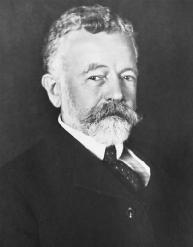 Senator Henry Cabot Lodge answered Senator White’s question directly (p. 280). “I should have argued then what has been argued ably since we came into secret legislative session, that at this moment the Administration was compelled to violate the neutrality of those islands, that protests from foreign representatives had already been received and complications with other powers were threatened, that the annexation or some action in regard to those islands had become a military necessity.”
Senator Henry Cabot Lodge answered Senator White’s question directly (p. 280). “I should have argued then what has been argued ably since we came into secret legislative session, that at this moment the Administration was compelled to violate the neutrality of those islands, that protests from foreign representatives had already been received and complications with other powers were threatened, that the annexation or some action in regard to those islands had become a military necessity.”
The transcripts of the Senate’s secret session were not made public until 1969.
Commenting on the United States flagrant violation of Hawaiian neutrality, T.A. Bailey wrote in his article The United States and Hawaii During the Spanish-American War, “The position of the United States was all the more reprehensible in that she was compelling a weak nation to violate the international law that had to a large degree been formulated by her own stand on the Alabama claims. Furthermore, in line with the precedent established by the Geneva award, Hawai‘i would be liable for every cent of damage caused by her dereliction as a neutral, and for the United States to force her into this position was cowardly and ungrateful. At the end of the war, Spain or cooperating power would doubtless occupy Hawai‘i, indefinitely if not permanently, to insure payment of damages, with the consequent jeopardizing of the defenses of the Pacific Coast.”
On July 6, the joint resolution passed both House and Senate, despite objections by Congressmen that annexation could only take place by a treaty and not by a domestic statute, and President McKinley signed the measure on July 7, 1898. On August 12, 1898, at 12 noon, the Hawaiian Kingdom was invaded by the United States with full military display on the grounds of the ‘Iolani Palace. The first military base was Camp McKinley established on August 16, 1898 at Kapi‘olani Park adjacent to the famous Waikiki beach and Diamond Head mountain.
Since the invasion, the Hawaiian Kingdom has served as a base of operations for United States troops during World War I and World War II. In 1947, the United States Pacific Command (USPACOM), being a unified combatant command, was established as an outgrowth of the World War II command structure, with its headquarters on the Island of O‘ahu. USPACOM has served as a base of operations during the Korean War, the Vietnam War, the Gulf War, the Afghan War, the Iraq War, and the current war against the Islamic State of Iraq and the Levant (ISIL). There are currently 118 U.S. military sites throughout the Hawaiian Kingdom that comprise 230,929 acres (20%) of Hawaiian territory.
The United States Navy’s Pacific Fleet headquartered at Pearl Harbor on the Island of O‘ahu also hosts the Rim of the Pacific Exercise (RIMPAC) every other even numbered year, which is the largest international maritime warfare exercise. RIMPAC is a multinational, sea control and power projection exercise that collectively consists of activity by the U.S. Army, Air Force, Marine Corps, and Naval forces, as well as military forces from other foreign States. During the month long exercise, RIMPAC training events and live fire exercises occur in open-ocean and at the military training locations throughout the Hawaiian Islands. In 2014, Australia, Brunei, Canada, Chile, Colombia, France, India, Indonesia, Japan, Malaysia, Mexico, Netherlands, New Zealand, Norway, People’s Republic of China, Peru, Republic of Korea, Republic of the Philippines, Singapore, Tonga, and the United Kingdom participated in the RIMPAC exercises.
Since the belligerent occupation by the United States began on August 12, 1898 during the Spanish-American War, the Hawaiian Kingdom, as a neutral state, has been in a war of aggression for over a century. Although it is not a state of war in the technical sense that was produced by a declaration of war, it is, however, a war in the material sense that Yoram Dinstein’s War, Aggression and Self-Defense, 2nd ed., p. 16, says, is “generated by actual use of armed force, which must be comprehensive on the part of at least one party to the conflict.” The military action by the United States on August 12, 1898 against the Hawaiian Kingdom triggered the change from a state of peace into a state of war of aggression—jus in bello, where the laws of war would apply.
When neutral territory is occupied, however, the laws of war are not applied in its entirety. According to Sakuye Takahashi’s International Law applied to the Russo-Japanese War, p. 251, Japan limited its application of the Hague Convention to its occupation of Manchuria, being a province of a neutral China, in its war against Russia, to Article 42—on the elements and sphere of military occupation, Article 43—on the duty of the occupant to respect the laws in force in the country, Article 46—concerning family honour and rights, the lives of individuals and their private property as well as their religious conviction and the right of public worship, Article 47—on prohibiting pillage, Article 49—on collecting the taxes, Article 50—on collective penalty, pecuniary or otherwise, Article 51—on collecting contributions, Article 53—concerning properties belonging to the state or private individuals, which may be useful in military operations, Article 54—on material coming from neutral states, and Article 56—on the protection of establishments consecrated to religious, warship, charity, etc.
Hawai‘i’s invasion and occupation was anomalous and without precedent. The closest similarity to the Hawaiian situation would not take place until sixteen years later when Germany occupied the neutral States of Belgium and Luxembourg in its war against France from 1914-1918, and its second war against France where both States were occupied again from 1940-1945. The Allies considered Germany’s actions to be acts of aggression. According to James Wilford Garner’s International Law and the World War, vol. II, p. 251, the “immunity of a neutral State from occupation by a belligerent is not dependent upon special treaties, but is guaranteed by the Hague convention as well as the customary law of nations.”
Now that this information is coming to light after a century of indoctrination through “Americanization,” the entire world is being transformed by the harsh reality that Hawai‘i has been in a region of war since 1898. Stemming from this reality is the ongoing commission of war crimes, as well as defects in real property ownership that affect investments, such as mortgage-backed securities. The subprime mortgage crisis took place as a result of mortgages in these securities going into foreclosures, but a new crisis on the horizon is that these mortgages that originated in the Hawaiian Islands were never valid in the first place. Hawaiian Kingdom law was not complied with in the transfer of real property and the securing of mortgages since January 17, 1893.
In light of this severity, the acting Government of the Hawaiian Kingdom has developed a comprehensive plan through the decree of provisional laws to address this problem head on that is based on international law and precedents. The acting government is in the process of implementation according to the laws of war.

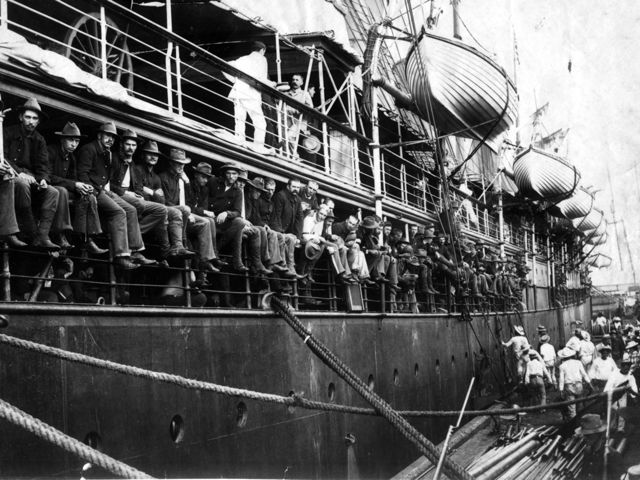
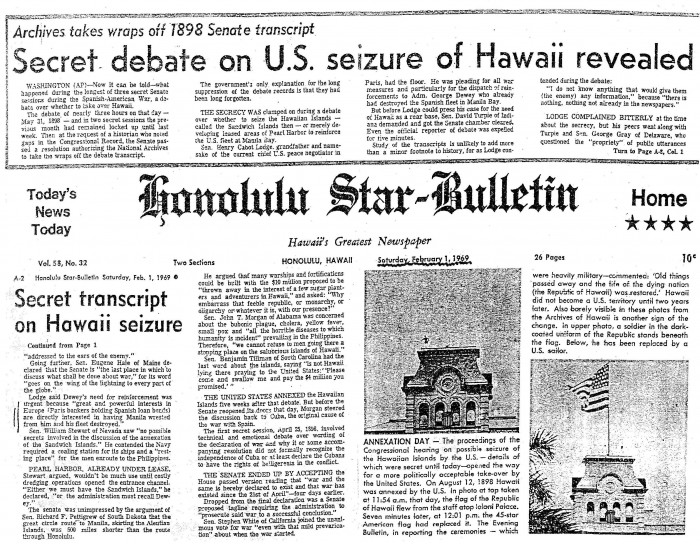
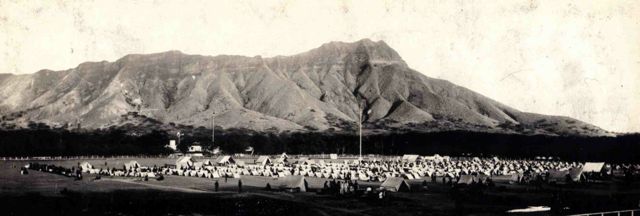
“The acting government is in the process of implementation
according to the laws of war.”
Love that, mahalo nui!
Win808: I like this too but who is actually going to enforce the laws? This isn’t a question to you specifically, I just wonder because there doesn’t seem to be a governing international body that has stepped up and agreed openly with the kingdom & is forcing the hand of the US to work with and comply with the Kingdom of Hawaii. Heck, even the ICC that summoned at least one district court judge has the case closed so tightly that you can’t get any information about it.
Hi Thomas,
IMHO, It would be foolish for any of us to predict what will
happen tomorrow concerning the kingdom, however the
information and evidence asserted by the AHKG to the
local and global community is greatly appreciated.
I believe that the kingdom was once a member of the family
of nations and entered into many treaties with many
countries including the U.S. it was also clear that the
kingdom was a neutral state.
The treaties that the kingdom entered into was never
terminated nor extinguished and for that reason
obligations remain.
The British had to pay 15.5 million to the U.S.
In a secret session of the U.S. Senate on May 31, 1898, Senator William Chandler warned of the consequences Alabama claims arbitration in Geneva, whereby Great Britain was found guilty of violating its neutrality during the American Civil War and compensated the United States with 15.5 million dollars in gold.
Imagine violations over 116 years, not limited to only the
U.S. but by many other countries even the ones that may
be assisting us now who held treaties with the kingdom!
We know that our country obtained its sovereign independence
by a joint proclamation on November 28, 1843. La ku’oko’a.
We know that the Lance Larsen case was allowed to proceed
at the Permanent Court of Arbitration at The Hague.
We know that the kingdom recently entered into the IV
Geneva Convention.
We know that the kingdom entered into ICC Rome Statue.
We know that the U.S. is without a treaty of cession from the
Hawaiian Kingdom for the Hawaiian Islands.
We know that the U.S. cannot refute the continuity of the
Hawaiian Kingdom.
We know that the AHCC has acknowledged the sovereign
continuity of the Hawaiian Kingdom by a Resolution.
We know that we were not colonized and seeking sovereignty
through self-determination.
We know that we are under a prolonged occupation by the U.S.
All these things we hold to be true; we just need the world to
catch up!
A hui hou
There is no argument that everything you have pointed out is factual and true. Maybe my concern was clearer in my mind than I had written.
The Int’l Community is a broad base and I am not aware of a specific entity, be it a group like the UN or a country like Sweden or Netherlands, that is forcing or pressuring the US to comply. The tip of the sword is very broad.
In my mind if the U.S. is to comply on their own, it will be an extremely long road. This administration has 2 more years, a new administration could change every 4. Is this broad tip sharp enough to make an administration comply during their tenure? Apologies were given but nothing happened.
My comfort level increases knowing specifically who in the international community is focused on the the plight of the kingdom and assisting all the effort that is being done.
Aloha Thomas,
Keep the faith!
Check this out, from a former post:
When Dr. Sai met with Dr. Maslen at the Geneva Academy of International Humanitarian Law’s office in Geneva on March 26, 2014, the staff of the War Report was already in their final stages of editing the reported armed conflicts and occupations for the year 2013 before submitting the manuscript to Oxford Press. Dr. Sai sought to have Hawai‘i included, but realized at the meeting it was too late for this edition.
On May 24, 2014, Dr. Maslen notified Dr. Keanu Sai by email that Hawai‘i would be noted in the next publication of The War Report: 2013.
The next publication of The War Report: 2013
is schedule to be released by Oxford Press on December 6, 2014.
“The classification of an armed conflict under international law is an objective legal test and not a decision left to national governments or any international body, not even the UN Security Council,” says Andrew Clapham, Director of the Academy and Graduate Institute Professor in International Law.
“It is not always clear when a situation is an armed conflict, and hence when war crimes can be punished,” added Professor Clapham. “The War Report aims to change this and bring greater accountability for criminal acts perpetuated in armed conflicts.”
See:
http://hawaiiankingdom.org/blog/the-war-report-2013-will-note-hawaiis-occupation/
116 years of unlawful U.S. activity within Hawaiian jurisdiction!
U.S. taxation without authorization! It looks like
they have a lot of fixing to do!
That was such an immaculately factual, truthfully on-point, irrefutable and historically educational experience!! I await the “word” to activate! I await the call to continue Na Kupuna Ku’e Petition!!
Mahalo Nui
Where can I find the words to the ” HK oath of allegiance?”
Compiled Laws of the Hawaiian Kingdom; Civil code of the Hawaiian Islands
Title 2, Chapter VII, Article VIII.-Naturalization of Foreigners
§ 430 The oath of allegiance to be administered as aforesaid, shall be as follows:
The undersigned, a native of ________, lately residing in __________, being duly sworn, upon his oath, declares that he will support the Constitution and laws of the Hawaiian Islands, and bear true allegiance to His Majesty _________, the King.
Subscribed and sworn to this ____day of ____, A.D. 20____,
before me,
_______________.
The Civil code of the Hawaiian Islands, found at:
http://books.google.com/books?id=CB04AAAAIAAJ&pg=PA93&dq=hawaiian+kingdom+civil+code-Naturalization+of+Foreigners&hl=en&sa=X&ei=ZP5gVMXxBYnjoATciYGQBg&ved=0CCsQ6AEwAA#v=onepage&q=section%20430&f=false
Google Nationality on this blog.
Aloha AHKG, “The acting government is in the process of implementation according to the laws of war.” Ok I got it. Mahalo for that.
Stated above:
The Allies considered Germany’s actions to be acts of aggression. According to James Wilford Garner’s International Law and the World War, vol. II, p. 251, the “immunity of a neutral State from occupation by a belligerent is not dependent upon special treaties, but is guaranteed by the Hague convention as well as the customary law of nations.”
That Hague convention guarantee, now in hind sight for the Hawaiian Islands,
should be followed up by a consequence so severe so as to discourage even
the thought of occupation over a neutral state by a potential belligerent occupier
perhaps so severe as to forfeit the sovereignty of the potential occupier!
If the consequence is not swift and severe the threshold to violate it would be so
low as a potential could entertain the benefits of the risk vs. reward.
If there are shared benefits by all states in a particular state’s neutrality than that
state’s protection should be bared by all reciprocal parties.
I’ve always looked at some areas in the middle east as having long lasting wars,
generational type of wars, not reflecting that we too have been entangled for the
last 116 years ourselves!
Are we political prisoners of this 116 year war?
Deprived from the benefits of our country!
Forced to participate in a system of foreign taxation!
Forced to accept what is best for the greater good even though
the greater good is without authority in our country!
It is not enough for foreign states to recognize a state’s neutrality, it must
come to its defense and see to its protection, otherwise the symbol for
a nation in distress (a nation’s flag flown upside down) will remain just that,
a useless symbol!
If it is within your country’s political parameters to ask if what happened to
the Hawaiian Kingdom can be done to another country, then ask it!
If it is within your country’s political power to take corrective actions to
right the wrongs, then assert it!
If it is within your country’s moral responsibility to see to it that people not
suffer under foreign subjugation, then help us resolve this matter!
Mahalo
Howzit Win808, I presume you have read all of the posts that the AHKG has provided on the legal history of the HK . If so, than you would conclude that the HK could prevail in an international civil or criminal action based on facts, law and precedent. Well I believe the international community knows this as well and has to be very cautious and responsible on addressing this issue. I have no doubt they will enforce what’s needed to be done in our situation but they have to make sure it’s done responsibly with minimum damage to the world’s financial sector which they are heavily invested. Sort of like the situation with President Cleveland and the Queen. The President knew he had to restore the Queen to be incompliance with international law but he also made sure amnesty was part of the deal inorder to protect the lives of his U.S. citizens and his political career. The BS with the U.S. Congress and Pres. Mckinnley is a whole different issue. The International Community could not pull a move like that without under minning what they stand for. Go back and read the last two paragraphs of the blogs post above.
I believe the AHKG has given the International Community what they needed inorder to minimize the impact on the financial sector and inturn allowing the process to move forward. I am referring to the AHKG proclamation made in accordance with HK Law, International Law and case precedence.
Check out what’s happening globally, countries are implementing their own measures inorder to hedge their investments in the world currencies and the demise of the petro dollar.
MHO
Aloha Kekoa,
What part of the last two paragraphs did you need calrification on?
Aloha Win808, Excuse me, I inadvertantly addressed you when I was attemepting to address Thomas’s concerns in his post to you.
No worries – all good!
A hui hou
“The acting government is in the process of implementation according to the laws of war.”
Ooh! Sounds intriguing, not to mention hopeful! That’s another thing, this information is not only giving me a much excellent education, but it is giving me something for the future: Hope–something that I’m sure all of us in occupied Hawaii feels does not exist. In occupied Hawaii, not only do we live under a system that is illegal and not supposed to be permanently here in the first place, but we live under a system that does not give us any hope for a prosperous future. We are forced to survive under a high cost of living, poor education, and live under a puppet regime that cannot uphold that so-called rhetoric of ignorance that America is better than the Hawaiian Kingdom (Yeah, right! Give me one, just one good thing that this occupation has done that the H.K. can’t do!) As a result, the vast majority of the population not only detest these ways of living, they are so depressed at it because nothing changes for the better welfare of the people.
Hawaii’s legal history is not only legal and logical, it is real and it is happening–something that is driving me to get hope for the future! Most people who are ignorant of Hawaii’s legal history would call people like me crazy, ludicrous, dreamers, etc. Well, to be honest, I would rather believe in the unbelievable and be shocked of the more education that is coming out along with the real-world situation occurring pertaining to Hawaii’s occupation than live in depression and have no hope for the betterment of Hawaii. When you’re depressed, your mind is like poi–mushy, watery and not going anywhere but staying in your poi bowl until its sour hahaha!
This article starts of with an out-and-out lie. The Monarchy was overthrown by Hawaiian citizens because Liliuokalani was going to abolish the constitution and virtually eliminate hard fought democracy by the Kingdom’s citizens. The US peacefully landed a small contingent of troops to protect American citizens and their property during the revolution by Kingdom citizens. The US troops never fired a shot or threatened anyone. Liliuokalani had her own troops near the palace and could have defended herself if she so chose.
It does matter how we look at the present situation for there is no Treaty of Annexation. International Law, US Constitution and Hawaiian Kingdom Law a sovereign nation cannot annex another sovereign nation without a treaty or an agreement. All we need to see is the Treaty of Annexation between the Hawaiian Kingdom and United States of America and we all good. Question if there is no treaty how is it Hawai’i became the 50th State without a treaty? USA has been questioned how did they ended up claiming Native America land as their land when they are immigrants from Europe. Where is the truth . There were no land ownership issues until the European people landed. There must be some truth of land ownership. Some foreigner along the line of Hawaiian History must of created paper work of ownership. Did they just out right wrote a deed and claimed the land? Who approves ownership of land back then on foreign land? If we did that today people would think you are nuts! I need an intelligent answer how does a foreign person enters a foreign nation and claim it is their land?
The note from Stevens to Dole, tends to prove your opinion as to “what happened” is uniformed and unsupported by the facts. It is fiction, or propaganda you have been told and, apparently, actually believe. When faced with additional facts, opinions of the thoughtful, change.
Here’s a game-changer, if you honestly engage the facts and aren’t simply propagandizing a factually false narrative…..
“The “smoking gun” is a note to Dole signed by Stevens marked “private” and written under the letterhead of the “United States Legation” in Honolulu and dated January 17, 1893. Stevens writes, “Judge Dole: I would advise not to make known of my recognition of the de facto Provisional Government until said Government is in possession of the police station.”
You don’t “peacefully land” U.S. troops. The landing of the troops without permission of the lawful government is an “unpeaceful” act of war creating a state of war.
I was robbed at gunpoint once. The robber “peacefully aimed” a gun at me and never fired a shot. The pointing of the gun was ‘threat’ enough to relieve me of my wallet. I “could have” defended myself but the criminal and the crime was perpetrated and self-preservation called for not engaging in hostilities with a superior force. The U.S.S. Boston had cannons that could reach Diamond Head. Honolulu was a small town of only 20,000 or so. The Kingdom Government could have disposed of the insurgency by arresting them, except that they were protected by a vastly superior, in terms of ability to kill and destroy, US military forces. Stevens had made it clear that the US blue jackets would kill HK police if the police attempted to arrest the criminal traitors. The US military forces were not deployed to protect US nationals and US national-owned property in the opinion of the investigator who came in later.
In gangland terms, outside US muscle provided the physical force to protect the Dole gang from the HK government.
If someone invades your home, the invader is in the wrong, the homeowner isn’t under any duty to battle the robber. And the house remains the property of the owner regardless of how long the armed robber remains.
The nice thing about facts is that they exist whether one happens to “believe in them” or not.
Cheers.
https://hawaiiankingdom.org/blog/the-smoking-gun-no-question-on-illegality-of-the-u-s-overthrow-of-the-hawaiian-government-in-1893/
There was nothing peaceful about hundreds of armed sailors and marines marching to Liliuokalini’s residence and demanding that she step down or be evicted. The US Navy planned this coup and was the primary force for the takeover. The demands of the rich, white landowners were secondary. The US military wanted Hawaiian bases, and got them!
I am a caucasian living in Indiana and I agree with you that the United States did illegally occupy the Hawaiian Kingdom for military purposes. I lived in Hawai’i for six years and met my wife there. She is Hawaiian. I learned to have a great deal of respect for the Hawaiian people and your culture. The many stories I listened to and learned from made it clear to me how proud the people of Hawai’i are. I think that if the U.S. had not invaded another country would have eventually done it. The strategic location of the Islands are so important that it certainly would have occured. Is this something that you have ever considered and what do you think about it. And thanks for posting all the information, I learned a lot more about this topic. Thank you.
Your mentality that if the U.S. did not invade Hawaii another country would have is not only unsubstantiated but also misleading and disrespectful. Hawaii which is a neutral country has the protection of neutrality under international law. This means that although it can be invaded and occupied by another country such as the U.S., it cannot loose it’s continuity as a nation state and annexation in any form is prohibited. The laws of occupation must be administered until the occupation ends. The Evil about what the U.S. did and is doing in Hawaii is that it invaded Hawaii to take it for itself. They disguised the occupation and orchestrated a fake annexation knowing full well that what they were doing was illegal. They furthered their own self interest by denationalizing the Hawaiians stripping away their rights and national identity and made Hawaiians the minority in their own country. Basically the said F__k the Hawaiians back then and F__k the Hawaiians today. Tell me how you can say you respect the Hawaiians and in the same breath say F__k me and feel good about it?
I feel that I must apologize to the followers of this blog and especially the kupuna for my above rant. I let frustration and emotion get the best of me. E kala mai ia’u.
How would you say “If upset, no hit send button” in
Hawaiian? cheers.
To all who read this article and understand that we are and have never surrender our rights or sovereignt to our nation and with all the facts and the laws. We are still in the same position as we were back then in 1843. With the intention to do good it shouldn’t be a problem to make the wrong right. But their intentions are not good for they have always been in an evil state of mind. Evil is all they know, everything they have is stolen property from people that have been murdered. For their lands resources, knowledge and exploitation of there people. Evil hate, discrimination, greedy decitefu,l deceptive charicteristic. Everything these people touch spoils.
Hello I am in England and have been left a document by a recently deceased relative. It is from Frank O. Hay – Kaua’i Community Liaison Officer regarding a Time Capsule located at Kanaloa Triangulation Station,Kaua7.
It is dated 27th May 1976
Would love to hear any information about the project and those involved.
Can anyone there help me?
Thanks